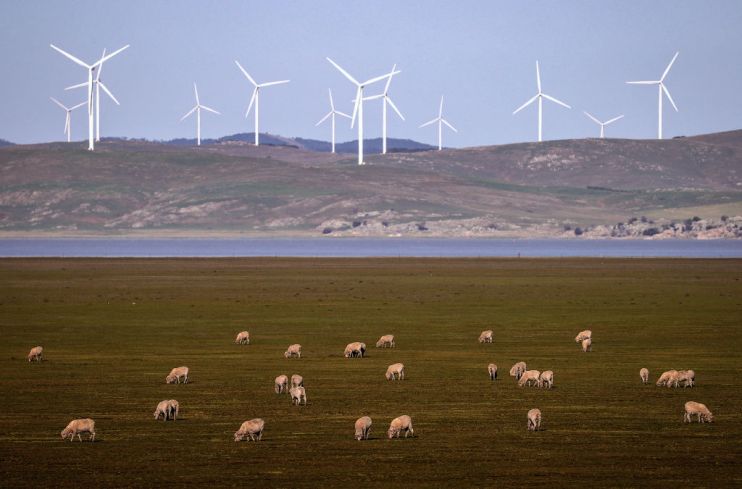UK risks green ambitions with levies and planning hurdles, warns Siemens Energy

The UK’s planning restrictions and levies on renewable producers undermine what should be an attractive market for renewable generation and green technology, argued a senior member of technology specialist Siemens Energy (Siemens).
Steve Scrimshaw, vice president of its UK & Ireland division told City A.M. the Government should not “scare the horses” by making future projects less financially appealing to investors than they should be.
The energy boss recognised that the cost-of-living crisis, reflected in record household energy bills, meant developers and producers expected a “certain degree” of intervention in the market.
However, Scrimshaw believed the Government needed to ensure raising revenues from domestic energy generation for necessary support packages did not hamper spending commitments for a greener future.
Scrimshaw said: “You have circumstances with the current energy crisis which have required intervention. I think people will accept a certain degree of that type of thing to help with the current crisis, but we have got to be careful and cautious so that we don’t scare the horses.”
Siemens develops technologies to boost innovation across the energy sector from power and heat generation and grid technologies to components for renewable projects.
Its products and services are sold to renewable producers to power and maintain their low-carbon projects.
Scrimshaw also described current planning rules for projects as “hurdles” for investment.
He said: “I understand they need to look after consumers and that’s important, but I think they also need to take the brakes off to allow developments to happen quickly.”
The vice president noted that it was still taking considerably longer to obtain planning consent for renewable projects than the time taken to build new developments.
This was an increasingly serious issue with the Government targeting vast ramp ups of offshore wind, hydrogen and solar to boost the country’s supply security following Russia’s invasion of Ukraine in February earlier this year.
The UK is also a signatory of the Paris Agreement and is targeting net zero carbon emissions over the next three decades.
Scrimshaw argued that the UK needed to ensure a pipeline of renewable projects across the country to create green jobs for the transition to low carbon energy sources.
He said: “These are career jobs – not project jobs – these are things that are going to last our lifetimes. Real things that are going to help to support the UK economy.”
Government hurdles hamper green ambitions
The Government recently imposed a levy on renewable energy generation of 45 per cent on extraordinary profits – defined as electricity generation sold above £75 per mwh.
This is barely a quarter of recent wholesale prices, but 1.5 times the average price of electricity over the last decade. Combined with corporation tax, it brings the cumulative rate on earnings over £75Mwh to around 70 per cent.
The levy is expected to raise over £14bn between 2023 and 2028 and help pay for the more than £55bn of support being provided for household and business energy bills.
It also does not include investment relief – in comparison to the Energy Profits Levy for oil and gas operators in the North Sea which offers relief of up to 91p in the pound for new developments.
As for planning reforms, National Grid’s chief executive John Pettigrew has warned it will need to build seven times as much infrastructure over the current decade as it has constructed in the past 32 years to meet the country’s renewable energy goals.
The Government is starting to make moves to boost development such as lifting onshore wind from its de-facto ban and opting against restricting solar farms on agricultural land.
Scrimshaw argued it was urgent that the UK made the most of its attractive fundamentals such as technological advancements and the size of the market.
He said: “If you look what’s happening with in, in the US, everybody’s attracted to the US because they are creating an environment people want to invest in. I think we’ve got the makings of that in the UK. Let’s not miss the opportunity, and make sure that we don’t make decisions that actually put people off from investing or leave.”
When approached for comment, the Treasury argued it was encouraging investment in the UK and the levy was only being applied to vast profits.
A spokesperson said “We are taking significant action to encourage investment in renewable generation. The Electricity Generator Levy is only applied to extraordinary returns, which are approximately 1.5 times the average price over the last decade.
“And to protect the supply of green energy, the levy will not be payable on renewable generation produced under Contracts for Difference, which is the main form of support for green energy, and which will account for most new large renewable generation.”